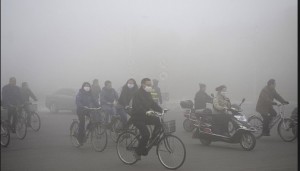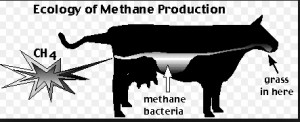Context
Currently a European Union (EU) directive for reducing air pollution is the National Emission Ceilings (NEC) Directive (2001/81/EC). The Directive sets annual emissions ceilings, for post 2010, for each Member State for four compounds: sulphur dioxide (SO2), nitrogen oxides (NOx), non-methane volatile organic compounds (NMVOCs), and ammonia (NH3). Between 1990 and 2010, the directive resulted in the reduction of SO2 by 82%, of NOx by 47%, NMVOCs by 56%, and NH3 by 28%.
Unfortunately, air quality throughout the EU continues to create significant health and environmental risks. Poor air quality is the number one environmental cause of premature deaths in the EU with up to 420,000 premature deaths in 2010. It also causes or aggravates asthma and other respiratory illnesses that impact day-to-day breathing. Not surprisingly the public is deeply concerned. A recent Eurobarometer survey indicates that more than half of Europeans believe that air quality has deteriorated over the last 10 years, about 7 out of 10 are unhappy with public authority efforts to improve air quality, and 4 of 5 support additional measures to address air pollution.
As a consequence, a new NEC Directive was proposed in 2013 (Directive 2013/0443 (COD) to strength NEC for the 4 covered emissions (SO2, NOx, NMVOCs, and NH3), and to extend coverage under the NEC, with limits, for methane (CH4) and particulate matter (PM). The new emission “commitments” would apply from 2020 and 2030, with intermediary limits set for 2025. The current directive would apply to emissions until 2019.
Particulate Matter and Methane
A specific concern for particulate matter (PM) emission is the transport sector, and especially the exhausts from diesel vehicles. The lengths to which VW went in falsifying emissions tests for diesel vehicles attests to the importance of diesel exhausts, and the financial return from hiding the impact from PM and other pollutants in those exhausts. The health effects from PM, especially respiratory illnesses, are particularly harmful for vulnerable populations, such as the elderly, children, and the sick.
Methane is a greenhouse gas (GHG) that, while short-lived, has a very high Global Warming Potential compared to carbon dioxide (CO2). That is, it will warm the earth to a much greater extent than CO2 over a given period of time. Besides its disastrous impact on global warming, methane also is a significant contributor to the formation of ground-level ozone, along with NOx. Ozone in turn causes smog and inflammation of the respiratory tract increasing the risk of mortality. It also can cause crop failure, including wheat, alfalfa, corn and beans. It severely damages buildings, especially the older buildings in many European towns, and limits forest growth.
The Attack on Regulation of Methane
In the early stages of discussions on the proposed new NEC Directive, the regulation of methane has come under heavy attack from various interest groups, especially the agriculture sector. In part, it is claimed that methane should be left out of the scope of the NEC directive due to concerns about possible overlaps with greenhouse gas emission reduction targets, since methane is a GHG. In a recent report, the European Environmental Bureau (EEB) has addressed this and other concerns about regulating methane, and dispelled certain myths created by the opponents of regulation.
The Myths
One myth is that including methane in the NEC Directive duplicates regulation since methane is a GHG subject to efforts to reduce GHGs. The EEB report shows that this is incorrect. Methane is not actually, or necessarily, regulated by climate change agreements, such as the Kyoto Protocol. While the Kyoto Protocol covers all GHGs, Member States are not required to actually require any reduction in methane, just GHGs. So the GHG reductions can be achieved entirely through CO2 reductions, and methane would remain unregulated, for GHG or any other purpose.
This is what is happening in Ireland. While methane, primarily from the agriculture sector, constitutes about 30% of Ireland’s total GHG emissions, there is no effort to reduce methane, only CO2. Moreover, the agriculture sector has been given free rein to expand the dairy herds and other parts of the sector, so that methane will continue to impact Ireland’s GHGs or likely even increase.
With no regulation of methane, its adverse effects will continue with health risks, crop and forest losses. It is ironic that agriculture is allowed to grow unfettered by environmental regulation (although subject to the whims of the market) and its very growth will increase methane which will add more ozone which will adversely affect crops. A vicious circle.
Another myth propagated by the interest groups trying to protect methane is that any regulation threatens to undermine the agriculture sector. Again, that is not correct. Studies have demonstrated that there already exist best practices for storing and spreading manure in ways to reduce methane emissions. In addition, changing feedstocks can reduce the levels of methane from farming, and improve animal welfare at the same time. Of course the agriculture sector knows that there are ways to reduce methane emissions, but it does not want to pay the price for doing so, and will not until the Irish and/or EU government require it. One additional measure to assure that methane emissions do not rise is to ban fracking since it is a significant source of fugitive methane emissions.
Most industrial facilities were required to install smokestacks to reduce air pollution and it was at a cost. Isn’t it time for the agriculture sector to do its share?
A corollary argument against regulating methane is that small farms will be particularly harmed. But under the NEC Directive, Member States can choose how to reduce methane emissions. For instance Ireland could require the necessary reductions to be met only by large farms, leaving small farms unregulated. The EC made such a distinction in regulating ammonia emissions from cattle feedlots.
Pleas from the agriculture sector, and supporting politicians, to protect the small farms are disingenuous. Much of the agriculture sector, and particularly its lobbying efforts, is dominated by large farms. Even those in the business will acknowledge that the government’s Harvest 2020 policy to expand the dairy herds will result in a further consolidation to larger farms. So it seems that the Harvest 2020 policy, and lobbying efforts of the larger farms within the agriculture sector, present a bigger challenge to the survival of the small farms in Ireland than any regulation of methane.
Conclusion
It is always useful to point out that air pollution in the EU has improved, even significantly in some places and with some pollutants, over the past decades. It is also important to note that these improvements resulted from EU and national regulation of pollutants. PM and methane remain critical pollutants that need to be controlled despite the concerted lobbying by special interest groups.
With regard to the vested agricultural interests it does seem at times that the agriculture sector in Ireland, and perhaps in the EU, are largely equivalent to the oil/gas/coal lobby in the US – well-funded, with a short-term-prospective, and bent on pushing their narrow financial interests.
Sources
European Council of the European Union, “Revised national emission ceilings (NEC directive),” www.consilium.europa.eu/en/policies/clean-air/national-emission-ceilings/
EEB, AirClim, Client Earth, Health & Environment Alliance, Transport & Environment, Position Paper: Revision of the National Emission Ceilings (NEC) Directive (October 2014). www.eeb.org/EEB/?LinkServID=9168DFDD-5056-B741-DBA5B64C92B81F9D
EEB, Fact Checks: Methane, Farming and Air Pollution (June 2015). www.eeb.org/index.cfm/library/methane-and-nec-fact-checking/
EURACTIV, “Governments ditch EU methane limits” (12 JUNE 2015). www.euractiv.com/sections/agriculture-food/governments-ditch-eu-methane-limits-315333
Joe Romm, “How The US EPA And New York Times Are Getting Methane All Wrong,” (20 August 2015) in Commentary section of current issue of irish environment magazine (Oct 2015).
Interview with Michael Barry, Director, Irish Dairy Industries Association (1 Feb 2013) in Podcast section of irish environment magazine www.irishenvironment.com/podcasts/interview-with-michael-barry-director-irish-dairy-industries-association/




No comments yet, add your own below